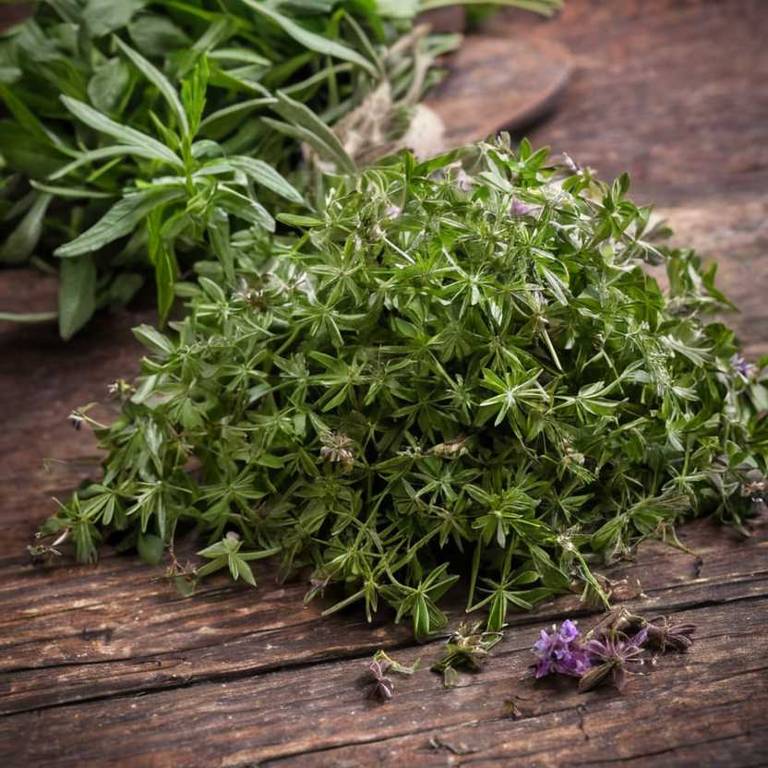By Leen Randell
Updated: Jul 05, 2024
What Are The Medicinal Properties Of Valeriana Officinalis (Valerian)?

Valeriana officinalis, also known as valerian, has health benefits such as promoting relaxation, reducing anxiety, and improving sleep quality.
The medicinal constituents of valerian include valerenic acid, isovaleric acid, and valeranone, which have been shown to have sedative and anticonvulsant properties. Valerian can be prepared as a tea, tincture, or capsule, and is often combined with other herbs to enhance its effects. Side effects of valerian include drowsiness and headaches, which are typically mild and temporary.
It is recommended to consult with a healthcare professional before using valerian, especially if taking other medications or with a pre-existing medical condition.
This article explains the health benefits, active constituents, medicinal preparations, possible side effects, and precautions related to Valeriana officinalis.
- What are the health benefits of Valeriana officinalis?
- What are the active constituents of Valeriana officinalis?
- What are the medicinal preparations of Valeriana officinalis?
- What are the possible side effect of using Valeriana officinalis improperly?
- What precautions to take when using Valeriana officinalis medicinally?
What are the health benefits of Valeriana officinalis?
Valeriana officinalis, also known as valerian, has health benefits such as promoting relaxation and reducing stress due to its sedative and calming properties.
Its roots contain a variety of active compounds that can help alleviate symptoms of insomnia, anxiety, and restlessness.
Valerian root is also known for its potential to reduce inflammation, lower blood pressure, and improve sleep quality, leading to overall better physical and mental well-being.
Here's a detailed article about the 10 health benefits of Valeriana officinalis.
What are the active constituents of Valeriana officinalis?
Valeriana officinalis, also known as valerian, has active constituents such as valerenic acid, valeranone, and valepotriates, which contribute to its medicinal properties.
These compounds interact with the brain's GABA receptors, promoting relaxation, reducing anxiety and stress, and inducing sleep.
Additionally, valerenic acid and valeranone exhibit sedative and antispasmodic effects, while valepotriates possess antimicrobial and anti-inflammatory properties.
Here's a detailed article about the 10 active constituents of Valeriana officinalis.
What are the medicinal preparations of Valeriana officinalis?
Valeriana officinalis, also known as valerian, has medicinal preparations such as dried roots, capsules, and teas that are used to alleviate anxiety, insomnia, and restlessness.
The root of the plant is a rich source of valerenic acid and valepotriates, which contribute to its sedative and calming properties.
Valerian extracts are often used in combination with other herbs to enhance relaxation and promote sleep quality.
Here's a detailed article about the 10 medicinal preparations of Valeriana officinalis.
What are the possible side effect of using Valeriana officinalis improperly?
Improper use of Valeriana officinalis, also known as valerian, increases the chances of experiencing side effects such as drowsiness, dizziness, and stomach upset.
It can also interact with certain medications, such as sedatives, and exacerbate conditions like liver disease and kidney problems.
Additionally, valerian can cause headaches, nausea, and vomiting in some individuals, particularly when taken in high doses or for extended periods.
Here's a detailed article about the 10 most common side effects of Valeriana officinalis.
What precautions to take when using Valeriana officinalis medicinally?
Before using Valeriana officinalis, also known as valerian, for medicinal purposes, you must take precautions such as consulting a healthcare professional, especially if you're pregnant or breastfeeding, as it may interfere with fetal or infant development.
Additionally, individuals with liver or kidney problems, or those taking medications that slow the heart rate, should exercise caution or avoid using valerian altogether.
Proper dosing is also essential to avoid adverse effects.
Here's a detailed article about 10 precautions to take when using Valeriana officinalis.